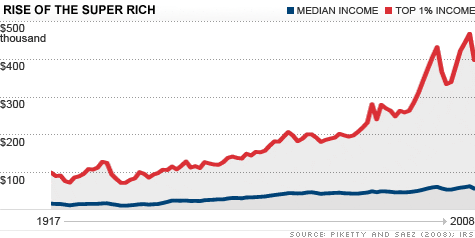Well, children, we are looking at a fairly significant increase in the federal gasoline tax, because the revenues for our highways (and other transportation stuff) are just insufficient to pay for the upkeep of our roads and bridges.
But as with many Government problems, it is largely contrived and the solution is as simple as it is obvious.
First, a bit of history.
During the Great Depression, our worthy Congresspersons spent a lot of their effort trying to "bring home the bacon," so to speak. They fought for the construction of roads, bridges, military installations, and other government buildings in their districts, in order to create (mainly) construction jobs that would stimulate the local economy.
But there was a fly in the ointment. Unscrupulous contractors, mainly from The South, would bid these jobs at very low prices, and execute them with low-wage workers brought in from the outside - usually so-called, "Negroes." Thus, the jobs that were created did not benefit the locals, who the Congressperson was trying to benefit.
So they passed a law that required that on all Federal construction projects, the bidding contractors were required to pay the "prevailing wages" in the locality where the construction took place. So the outside contractors could not gain any benefit by bringing in people who were willing to work for less, because they were required to pay the same as local contractors.
Over a short period of time, the Department of Labor decided that the "prevailing wage" would be defined as the local construction union wages, regardless of any actual reality. So if only 5% of the local construction workers were Union and 95% were not, the "prevailing wage" was still the union rate. This is the way it is now.
As a result, every Federal construction project since the 1930's has been bid and priced at inflated wages and, generally speaking, counterproductive union work rules.
It is impossible to say exactly how much money is being wasted due to federal "prevailing wage" practices (most states have analogous laws as well), but it cannot help but be in the tens of billions of dollars every year. The Obama Administration has doubled down on this counterproductive practice by insisting on project labor agreements, thus ensuring that non-union contractors can't successfully get contracts, even if they agree to pay union rates. Nice, huh?
Repeal Davis Bacon. Fire Barry O'Bama.
Problem solved.
But as with many Government problems, it is largely contrived and the solution is as simple as it is obvious.
First, a bit of history.
During the Great Depression, our worthy Congresspersons spent a lot of their effort trying to "bring home the bacon," so to speak. They fought for the construction of roads, bridges, military installations, and other government buildings in their districts, in order to create (mainly) construction jobs that would stimulate the local economy.
But there was a fly in the ointment. Unscrupulous contractors, mainly from The South, would bid these jobs at very low prices, and execute them with low-wage workers brought in from the outside - usually so-called, "Negroes." Thus, the jobs that were created did not benefit the locals, who the Congressperson was trying to benefit.
So they passed a law that required that on all Federal construction projects, the bidding contractors were required to pay the "prevailing wages" in the locality where the construction took place. So the outside contractors could not gain any benefit by bringing in people who were willing to work for less, because they were required to pay the same as local contractors.
Over a short period of time, the Department of Labor decided that the "prevailing wage" would be defined as the local construction union wages, regardless of any actual reality. So if only 5% of the local construction workers were Union and 95% were not, the "prevailing wage" was still the union rate. This is the way it is now.
As a result, every Federal construction project since the 1930's has been bid and priced at inflated wages and, generally speaking, counterproductive union work rules.
It is impossible to say exactly how much money is being wasted due to federal "prevailing wage" practices (most states have analogous laws as well), but it cannot help but be in the tens of billions of dollars every year. The Obama Administration has doubled down on this counterproductive practice by insisting on project labor agreements, thus ensuring that non-union contractors can't successfully get contracts, even if they agree to pay union rates. Nice, huh?
Repeal Davis Bacon. Fire Barry O'Bama.
Problem solved.




